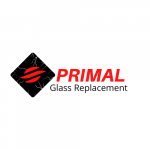Windows are more than just structural elements in a building; they play a crucial role in energy efficiency, safety, aesthetics, and overall comfort. Choosing the right type of glass can significantly impact these factors, making it essential to understand the options available. This article breaks down window glass into common and specialized types, highlighting their features, benefits, and typical applications to help you make an informed decision.
Float glass, also known as annealed glass, is the most basic type of glass used in windows. It is produced by floating molten glass on a bed of molten tin, which creates a smooth, flat surface.
Features:
Applications:
Tempered glass, or toughened glass, is heat-treated to enhance its strength. It is approximately five times stronger than standard float glass and shatters into small, rounded pieces when broken, reducing the risk of injury.
Features:
Applications:
Laminated glass is created by bonding two or more layers of glass with a plastic interlayer, typically polyvinyl butyral (PVB). This construction provides enhanced safety and durability.
Features:
Applications:
Insulated glass consists of two or more glass panes separated by a spacer and sealed to create an insulating air or gas-filled layer. This type of glass improves thermal efficiency and sound insulation.
Features:
Applications:
Low-E glass is coated with a microscopically thin, transparent layer that reflects heat while allowing light to pass through. This coating significantly enhances energy efficiency.
Features:
Applications:
Soundproof glass is designed with laminated layers or insulating techniques to block external noise, creating quieter indoor environments.
Features:
Applications:
Smart glass changes its transparency or opacity in response to electrical voltage, allowing control over light and privacy levels.
Features:
Applications:

